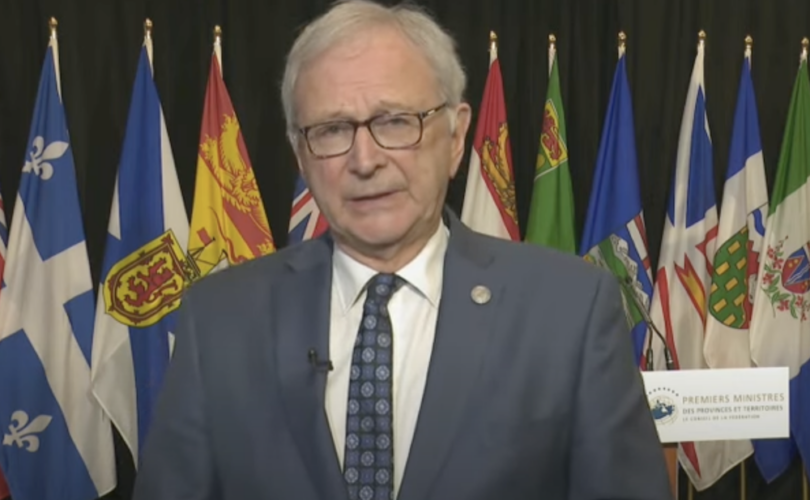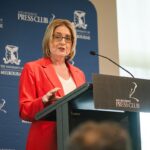Canadian Politics, Gender Ideology
New Brunswick premier willing to face election over parental rights while LGBT lobby fights back
By Jonathon Van Maren
It is notable that in much of the anglosphere and some European countries, the agenda of the transgender movement has been a subject of fierce debate. In the U.K. and Scandinavia, the “affirmative model”—including “social transitioning”—is being reconsidered, with Norway considering reclassifying “sex change” surgeries and cross-sex hormones for minors as “experimental treatments” rather than “gender-affirming care.” In the U.S., of course, the debate is raging in state legislatures across the country.
But debate on the issue has been almost entirely absent from Canada, where the transgender movement has taken over every major institution and the premises of gender ideology have been accepted virtually without question.
Any pushback to gender ideology has been largely relegated to a handful of alternative media platforms and a few dissident journalists. In fact, a recent report on children being socially transitioned by school staff without parental knowledge in the National Post noted that: “In Canada the issue isn’t being debated — it’s already been decided upon by schools, education officials and bureaucrats without parents getting a look in. A background document from the Public Health Agency of Canada states, ‘It is important not to involve the parents/caregivers of gender variant youth unless the youth themselves have already disclosed their identity to their families.’ It was the agency who emphasised the “not” by bolding it.”
But in a welcome first, one province may finally be moving to change that. On June 8, New Brunswick Education Minister Bill Hogan announced the Progressive Conservative government’s reform to Policy 713, which is the province’s policy on sexual orientation in schools. Now, students under the age of 16 who identify as “transgender” or “non-binary” will not be permitted to formally change their names or pronouns in school without parental consent. From CTV News:
Policy 713, which was introduced in 2020, establishes minimum standards for schools to ensure a safe, welcoming and inclusive environment for LGBTQ students. The new policy says the preferred first names and pronouns of students aged 16 and older will be used consistently in ways that the students request.
The three changes included in the reform are as follows:
“Transgender or non-binary students under 16 will require parental consent in order for their first preferred name to be officially used for recordkeeping purposes.” If consent isn’t possible, the student will be directed to “the appropriate professional to work with them in the development of a plan to speak with their parents when they are ready to do so”. For students over 16, “school personnel will consult with a transgender or non-binary student” “to determine their preferred first name and pronoun(s).”
“Private universal changing areas will be available in all schools.”
“All students will be able to participate in curricular, co-curricular, and extracurricular activities that are safe and welcoming.”
Again—and this is so important to understand—when LGBT activists and their allies talk about ensuring “minimum standards” for “a safe, welcoming, and inclusive environment” they are talking about keeping children safe from their parents. The view of the Canadian government as articulated by the Public Health Agency of Canada and shared by almost every provincial government in the country is that school staff and government employees are better equipped to look out for the best interests of children than their parents are. Children dealing with any number of issues unknown to staff could thus choose to change their identity for any number of reasons without their mothers or fathers being told.
READ THE REST OF THIS COLUMN HERE








